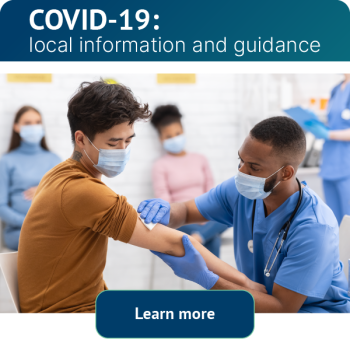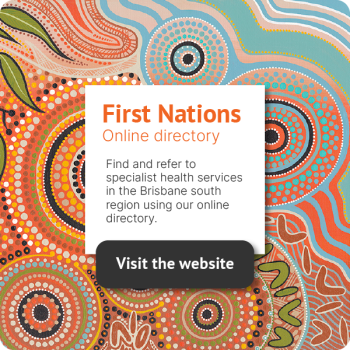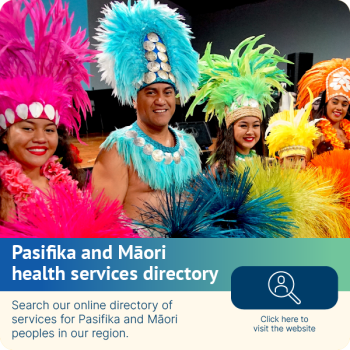Interpreting services
The Brisbane South PHN region is home to over 1.2 million people – many from different backgrounds and cultures. In fact, 31% of people in our region were born overseas and 20% were born in a non-English speaking country. Brisbane south is also the area of highest refugee settlement in Queensland and the largest Pasifika and Māori community in Australia. Knowing how and when to engage interpreting services in general practice is important for quality patient care, especially in the Brisbane south region.
TIS National Free Interpreting Service
Private medical practitioners and pharmacies can access the Free Interpreting Service delivered through TIS National to provide Medicare rebatable services to anyone in Australia who is eligible for Medicare.
Practice support staff and nurses working with a private medical practitioner registered with TIS National can also access the service.
TIS National is available 24 hours a day, every day of the year and provides access to interpreters of over 160 languages. This service ensures health professionals can provide quality care, advice and support to their culturally and linguistically diverse patients.
TIS National provides:
immediate phone interpreting
pre-booked phone interpreting
on-site interpreting
video interpreting.
More information about the TIS National Service, eligibility requirements and how to register and book are available on the website.
TIS National immediate phone interpreting
Phone: 131 450
Hours: 7 days, 24 hours
TIS National Medical Practitioner and Pharmacy Priority Line
Phone: 1300 131 450
Hours: 7 days, 24 hours
The Priority Line is only available to private medical practitioners and pharmacies (and their support staff).
Working with interpreters
Working with a qualified interpreter is essential to ensure all patients can access health care regardless of their English language skills. Engaging an interpreter helps you to communicate effectively with your non-English speaking patients, can protect you from professional risk and is consistent with best practice ethical and professional standards.
Guidelines for engaging an interpreter
Identify the need for an interpreter as early as possible.
If a patient does not speak English (and you do not fluently speak their language):
engage a qualified interpreter
avoid using relatives or friends to interpret – consider only for simple day-to-day communication
do not use an automated translating app – these are not approved for use by health professionals when communicating with patients in a clinical setting.
If the patient requires an interpreter:
identify their preferences and record these on file
consider whether a longer appointment will be needed. Time required to communicate effectively with the patient may be included when claiming time tiered MBS items. See MBS Online for more information.
Video: Hints and tips for working with interpreters
Video: TIS National services for medical practitioners
Video: Working with interpreters in pharmacy settings
Video series: Effective use of interpreters
Free Interpreting Service for allied health (FIS)
Since October 2022, some privately employed allied health professionals have access to the Australian Government’s Free Interpreting Services (FIS). The FIS aims to provide equitable access to key services for people with limited or no English language proficiency.
The service is delivered by the Department of Home Affairs’ Translating and Interpreting Service (TIS National) as a pilot program for selected LGAs based on areas of low English proficiency. The selected LGAs in the Brisbane South PHN region are Brisbane and Logan.
Video: Working with interpreters in allied health
Brisbane South PHN Interpreting for Allied Health Professionals Program
If allied health professionals are not eligible for the Free Interpreting Service, Brisbane South PHN has an Interpreting for Allied Health Professionals Program to ensure private allied health services can access interpreting services at no cost across our whole region.
Multilingual Allied Health professionals
We have created a list of multilingual allied health professionals (AHPs) to support you in finding an AHP who can provide health care services in a language other than English for your patient.
To register for inclusion on our list of multilingual AHPs, complete this form.




